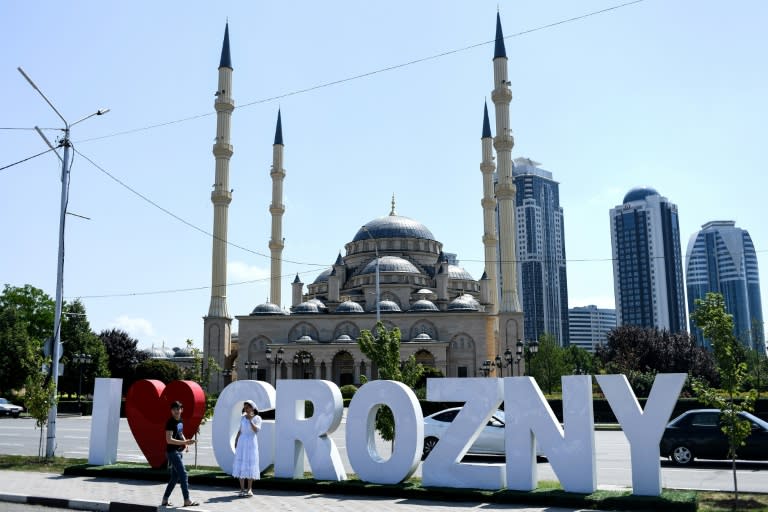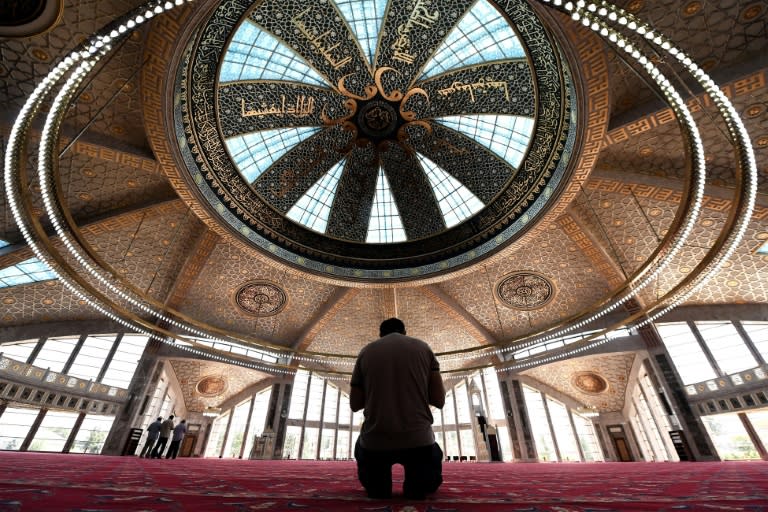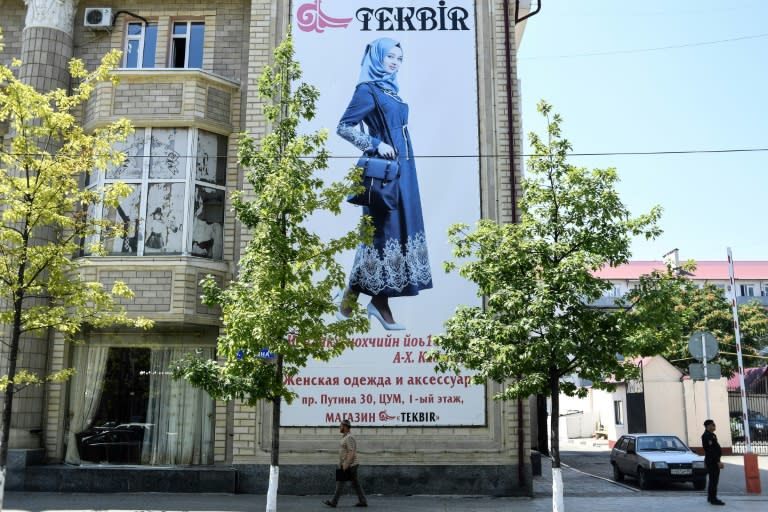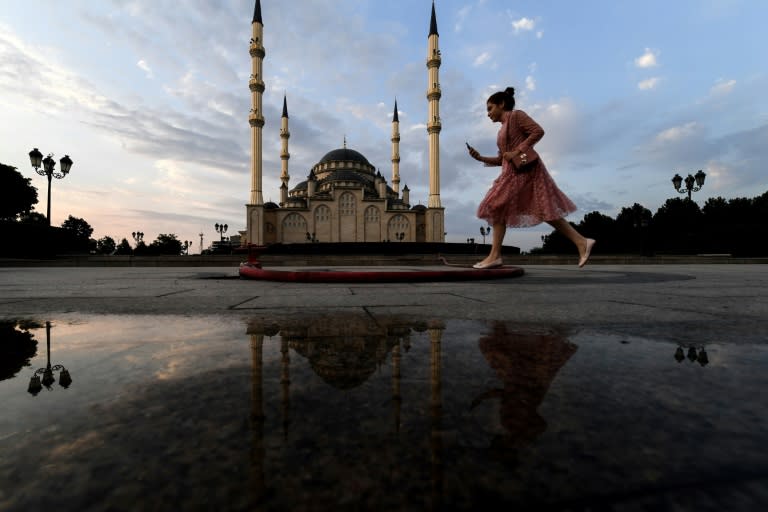Grozny emerges from ruins to become a 'showcase for Islam'
As the plane from Moscow touches down in Grozny, the capital of the Russian republic of Chechnya, a young woman wraps a scarf around her hair. "Here it's better to be veiled," she told AFP. On Grozny's streets, many women follow her example and wear headscarves or a hijab that covers the chest, while others are in long dresses that hide their arms and legs. "We don't force women to wear a headscarf," the city's mayor Muslim Khuchiyev said. "But we remind them that this is the Chechen tradition and what our faith calls for". Under authoritarian leader Ramzan Kadyrov, in power since 2007, the role of Islam has grown massively in the Russian North Caucasus republic. In Grozny, dozens of mosques have been built from the ruins of a city devastated after separatists waged two wars against the Russian army. Grozny hit the headlines in recent months after Russian opposition daily Novaya Gazeta published a report alleging that gay men were being persecuted by the Chechen authorities. Homosexuality in the conservative region is taboo. Kadyrov, 40, has also expressed support for polygamy, which is against the law in Russia, saying that "for me, the most important thing is Islamic law". With alcohol sales restricted, school children studying the canons of Islam and women officially encouraged to wear headscarves for work and study, regional authorities are actively promoting Islam. - 'The good Islam' - Malika, 29, goes to the mosque every day with her husband. "In the last two or three years, people have become more and more religious," she said, adding that she makes her daughter take lessons in religious morality. "Of course the authorities encourage us. A religious woman is a good mother, a religious man is a peaceful person," said Malika as her phone rang to alert her to one of the five daily calls to prayer, which are also broadcast around the city over loudspeakers. "Grozny has emerged from ruins to become a modern Muslim city, a showcase for Islam," Khuchiyev said. Taking pride of place in the centre of Grozny is the Akhmad Kadyrov Mosque, named after Kadyrov's father. Chechnya's previous leader Akhmad Kadyrov was assassinated in 2004. It was opened in 2008 on the site of the ruined former parliament building, destroyed by Russian bombs. Now "the largest mosque in Europe... is already not big enough," said Khuchiyev. Asked about financing for the mosque, the mayor simply said "the money came from Allah," echoing a phrase often used by Kadyrov himself to bat away questions about public spending. Most of the city's grand reconstruction projects were enabled by lavish funding from Russia. Since taking power Kadyrov has sought to eliminate the Islamist insurgency known as the Caucasus Emirate that grew out of the pro-independence fighting units in the second Chechen war that erupted in the late 1990s. "We absolutely had to build new mosques so that people came back to the good Islam," Khuchiyev said. Khuchiyev means that Chechens should embrace religion without being drawn into the Caucasus Emirate or the Islamic State group, to which the Emirate has now sworn allegiance. A large number of Chechens have joined IS fighters in Syria and Iraq, according to Russian authorities. - 'Muslim city, for Muslims' - In recent years, Kadyrov has expanded his message to address the wider Islamic world. After the violence erupted this month at a sensitive holy site in Jerusalem, he seemed to declare support for Palestinians on his highly popular Instagram account. "Almighty Allah has always at the necessary moment put a sword in the hands of a warrior for Islam who is capable of liberating Al-Aqsa," the post read. Al-Aqsa mosque is part of a compound in Jerusalem's Old City known as Haram al-Sharif, or Temple Mount to Jews. Moscow-based political analyst Nikolai Petrov said Kadyrov's desire for "a special role in the Muslim world" has been visible ever since Charlie Hebdo. Hundreds of thousands of Chechens joined a government-directed protest against the French satirical magazine for publishing cartoons of the Prophet Mohammed in January 2015, just days after staff at Charlie Hebdo were murdered in a jihadist attack. Kadyrov's "latest statements on Israel and Palestine, on Chechens in Syria, and even the scandal over gays in Chechnya -- all this only strengthens his position," said Petrov. "The greater the shock tactics, the stronger his status as leader." Grozny is aiming to be a place of influence for Muslims internationally, Khuchiyev said: "People come from very far away to pray and study here". However, the emphasis on Islam has alienated some residents, such as Yelena, who has lived in the city since she was born. Yelena, a Russian Orthodox member, said she feels "like a second-class citizen." "Grozny is a Muslim city, for Muslims," she said.






